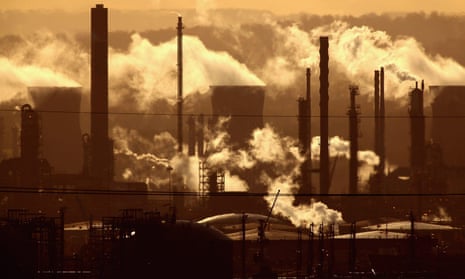Credit rating agencies such as Moody’s Investors Service and Standard & Poor’s are miscalculating the risks of climate change, which could lead to the next big financial crisis, a new report claims.
The paper, released on Wednesday by the Center for International Environmental Law (Ciel), an advocacy group in Washington DC, claims that much like the 2008 housing crisis, when banks overvalued so-called “subprime mortgages”, credit rating agencies are doing the same thing with fossil fuels like coal and oil.
“The value of fossil fuel investments in our current dynamic climate change trajectory could deteriorate dramatically just as sub-prime assets became worthless during the credit crisis,” said Muriel Moody Korol, senior attorney at Ciel and author of the report, in a statement. “As rating agencies inadequately rated assets then, they are likely overestimating the value of fossil fuel assets now.”
To avoid environmental catastrophes like rising sea levels and mass extinctions, scientists have agreed that the Earth’s temperature cannot exceed 2C above pre-industrial levels. To meet this goal, estimates suggest around 80% of coal reserves, half of gas and one third of oil must remain untouched.
Yet credit rating agencies are still taking a “business-as-usual” approach to fossil fuel investments, claims the report. By not factoring in the risks climate change could have on these investments, it says, they may be overinflating the credit ratings and value of companies that are contributing to global warming, putting investors at risk, and opening themselves up to potential legal liability.
Some credit rating agencies have acknowledged the potentially devastating impacts of global warming. S&P, for instance, released a special report on climate change earlier this year, which included an article exploring how increased natural catastrophes could affect companies’ creditworthiness.
“We have published, and continue to publish, extensive research on the implications of environmental and climate-related risks for businesses that we rate, and we include environmental, social and governance risks in our methodology for rating companies around the world,” S&P spokesperson John Piecuch said.
Moody’s, meanwhile, says it accounts for climate change risks in its credit ratings. A spokesperson said the agency “commented extensively on the credit impact of environmental risks for a range of industries around the world, and includes an analysis of these risks as part of its credit assessment where it impacts the risk of default and loss for debt obligations”.
Although agencies like S&P and Moody’s have started to explore the risk climate change poses to the financial community, this understanding is not necessarily making its way into their rating methodologies, according to Niranjali Amerasinghe, director of the climate and energy program at Ciel.
The agencies tend to look at a shorter time frame – say, five years – she said, while risks associated with climate change tend to be longer term, around ten years or more.
Looking ahead, Amerasinghe said rating agencies need to factor in two types of risks into their methodologies – “event risk”, which is the damage climate change can cause, and “assets stranding”, which in this case refers to the possibility that fossil fuels won’t be extracted and will be left in the ground.
“Assuming that prices for fossil fuels are going to rise, there’s going to come a point – if the industry declines – where you’re going to have to reevaluate those assets,” she said. “This could lead to a potential crash.”
Credit rating agencies still have a long way to go in incorporating climate change risks into their analyses, said Lenora Suki, head of sustainable finance product strategy at Bloomberg.
“In general, they have yet to thoroughly and transparently integrate these emerging issues and concerns into traditional credit models,” she said.
Issues related to climate change, such as the current shift away from coal in the US, are already affecting debt issuers, and will continue to do so in the coming years, she added.
“Rating agencies are facing pressures and will need to get better fast at being thorough and transparent about not just integrating factors related to climate change and other [environmental, social and governance] issues but also explaining to market participants how consideration of those factors influences their rating decisions,” Suki said.

Comments (…)
Sign in or create your Guardian account to join the discussion